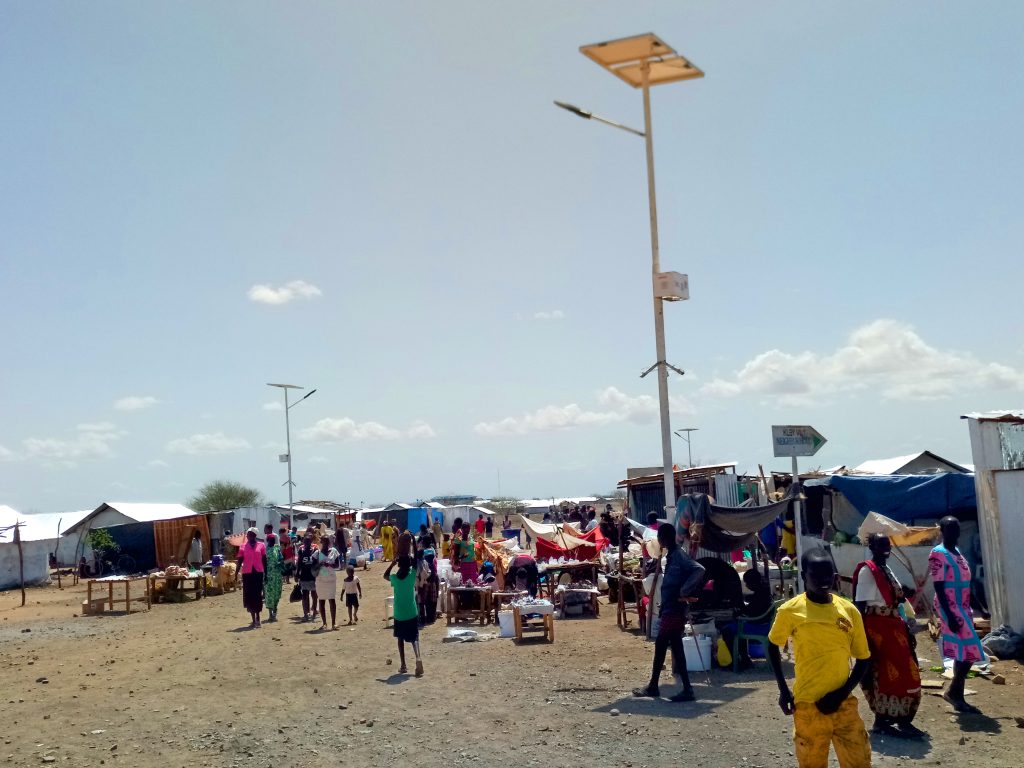New paper shows mini-grids could provide sustainable energy access in refugee camps
Authors Tonny Kukeera, Alycia Leonard, Pu Yang, and Stephanie Hirmer were commissioned by the Danish Refugee Council (DRC), which works with displacement-affected communities in 10 countries across East Africa and 40 countries globally. Their study explored the potential for mini-grid development to enable energy-driven growth in East African refugee hosting districts (RHDs), identifying key factors for investment in these to be successful. The research aimed to identify essential conditions, required data, and mechanisms to attract investment for mini-grid electrification in RHDs. The study used interviews with mini-grid developers and surveys of businesses in the Dadaab refugee settlements in Kenya to gather insights.

The paper is called “Building a Case for Investing in Energy-Enabled Growth in Refugee Hosting Districts”. Alistair Cowan, Programme Innovation and Business Engagement Manager at the Danish Refugee Council East Africa explained its significance: “This study with Climate Compatible Growth’s team at Oxford University has been the first step for the Danish Refugee Council to explore this challenge, looking to understand potential pathways for larger scale clean energy initiatives in the form of mini-grids and how we could potentially finance investments into expanding energy access into refugee hosting districts. It is clear that we need to think bigger to tackle energy access challenges and so by looking at developing a business case for investing in mini-grids, we hope that we can reach the scale required for impact in a commercially viable way to ensure approaches can be scaled.
Approaching this from the angle of energy-enabled growth provided by the team has been very useful in helping us frame the value that larger investments could provide and understanding how we can develop financially sustainable approaches. This is the first step of many.”
The research identified several critical factors necessary for viable mini-grid investment in RHDs. These include evidence of existing and sufficient demand for energy, potential for demand growth, off-take guarantees from key users, confirmed cooperation from regulators and political bodies, availability of patient capital (long-term low cost investments), and appropriate operation and ownership models matching the community’s capacity and needs. These factors form the foundation for successful mini-grid projects in refugee settings.
While RHDs present challenges, they also offer significant opportunities for mini-grid development. Challenges include complex bureaucracy and limited financing options for renewable energy mini-grid electrification pathways. However, RHDs also offer opportunities such as concentrated demand and potential cost savings compared to diesel generators. The report provides a data collection tool and recommendations for organisations like DRC to identify promising RHDs for mini-grid investment and facilitate engagement between stakeholders.

Tonny Kukeera added: “Mini-grids in refugee hosting districts offer significant opportunities, with evidence of strong existing markets for electricity consumption and potential for cost savings compared to diesel generators. However, there is a need for patient [long-term] capital and innovative financing approaches to make these projects viable.”
“Our research found that refugee camps may actually offer more advantages for mini-grid development compared to rural areas, including higher population density, more remittance income, and potentially more skilled technical labour. With the right business models and financing, mini-grids could enable sustainable energy access and economic growth in refugee settings.”
“Bureaucracy slows down the rollout of energy solutions to those who need it most. One developer spent 4 weeks building a mini-grid, but 52 weeks battling bureaucracy. Streamlined policies could electrify lives faster.”
You can read the paper here.